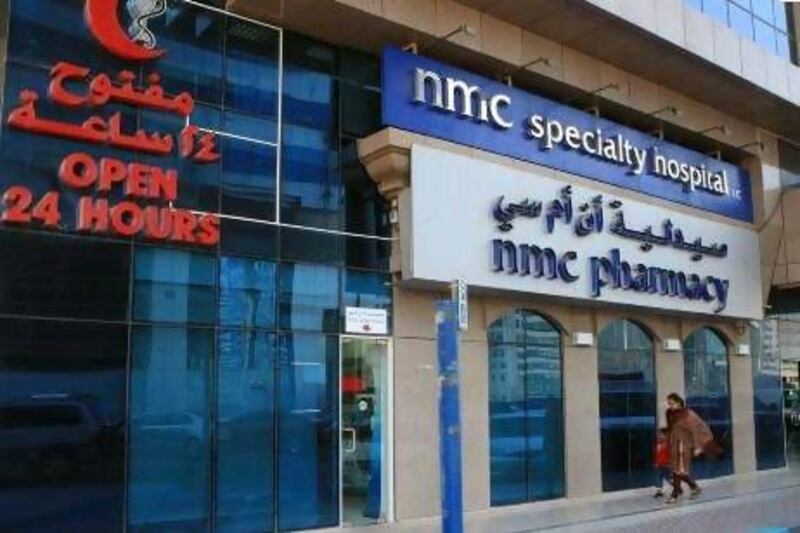Health care is becoming one of the hottest investment sectors in the Middle East, as insurers, drug makers and hospitals rush to raise funds to invest in treating a rapidly growing population.
Deals across the Middle East have come thick and fast in the past week, with a number focusing on the provision of health care for expatriates, a sector currently viewed as underserved.
On Wednesday, UnitedHealthcare International, a US health company, announced a strategic tie-up with Al Sagr National Insurance Company to provide health insurance for expatriates among its multinational clients in the Gulf, Lebanon and Jordan.
The group is focusing on the treatment of diseases including diabetes, alongside providing emergency and health and safety services to the oil and gas sector, said Simon Stevens, the president of the global health division at UnitedHealth Group.
"As we serve employers internationally, they're asking us to provide seamless coverage," he said. "Employers internationally will be able to get regional solutions rather than operate on a country-by-country basis."
The company is hoping to benefit from increasing government spending on health care and efforts to manage "a growing health burden on populations and governments in the region", Mr Stevens said.
Hikma, a Jordanian drugs manufacturer that does most of its business in the Middle East, announced a 25.5 per cent increase in sales to US$918 million (Dh3.37 billion) last year compared with 2010.
Hikma's adjusted net profit fell by 2 per cent to $100.9m, reflecting acquisition costs and inventory adjustments and the effect of the Arab Spring.
"We are expecting a strong performance in 2012, reflecting the investments that we have made across the group in 2011 and the excellent growth opportunities we see for our business, particularly in the [Middle East and North Africa] region and in the global injectables market," said Said Darwazah, Hikma's chief executive.
The company forecasts an increase of capital expenditure in the region by up to $90m, 30 per cent more than last year, as it expands its manufacturing lines in the Middle East - having also increased expansion spending significantly last year.
Hikma disclosed in a filing to the Nasdaq Dubai on Monday the sale of a 3 per cent stake to Artio Global Investors, an investment firm based in New York.
Last week, NMC Healthcare, based in Abu Dhabi, disclosed it is planning an initial public offering on the London Stock Exchange to raise $250m.
The ability to tap international investor demand was cited as a major reason for listing in London instead of approaching local markets.
A number of pharmaceutical companies have also changed hands recently. Acino, a Swiss drugs maker, announced on Tuesday the acquisition of the Middle East unit of the Swiss company Mepha Pharma.
"Under one umbrella, Mepha and Acino Switzerland brands will combine their forces to strengthen their common Swiss heritage and their commitment to the region," the companies said in a statement.
Acino estimates that the total size of the Middle East and North Africa market for pharmaceuticals could total $12bn.
twitter: Follow our breaking business news and retweet to your followers. Follow us





